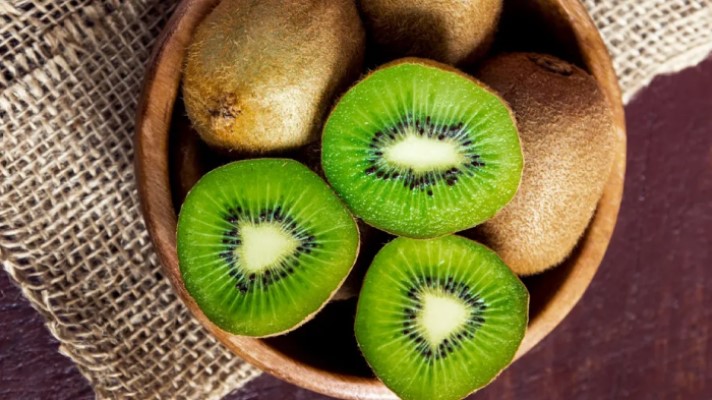
Constipation is a common digestive issue that can cause discomfort and affect one’s overall well-being. While there are various remedies available, natural solutions are often preferred due to their gentle and sustainable effects. Fruits are a fantastic source of fiber, vitamins, and minerals that aid in regulating bowel movements and promoting a healthy digestive system. In this article, we will explore an extensive list of fruits that help with constipation, their unique properties, and how they contribute to better gastrointestinal health.
Fruits That Help with Constipation:
Below is a comprehensive outline of fruits that can alleviate constipation, along with engaging and informative content for each.
1. Apples – Nature’s Fiber
Apples are well-known for their high fiber content, making them a popular choice for promoting regular bowel movements and relieving constipation. Fiber is essential for maintaining healthy digestion as it adds bulk to the stool, allowing it to move more easily through the digestive tract. This helps prevent the discomfort and straining associated with constipation.
One unique component of apples is pectin, a special soluble fiber found in the fruit. Pectin forms a gel-like substance in the intestines, which softens the stool and aids in its smooth passage. This gentle action makes apples a gentle yet effective solution for constipation relief.
To reap the full benefits of apples for constipation, it’s best to consume the whole fruit, including the skin. The skin contains a significant portion of the fiber and pectin. Additionally, eating apples raw or freshly juiced retains their natural goodness and maximizes the fiber intake.
2. Bananas – The Power Fruit
Bananas, often referred to as the “power fruit,” offer numerous health benefits, including their role in promoting healthy bowel movements. One of the essential elements in bananas that contribute to better digestion is potassium. This mineral plays a significant role in maintaining muscle function, including the smooth muscles of the digestive tract.
Potassium helps to regulate bowel movements by promoting proper muscle contractions, ensuring that waste is efficiently moved through the intestines. Including bananas in your diet can be particularly helpful for individuals experiencing constipation due to muscle-related digestive issues.
Another factor to consider when consuming bananas for constipation relief is their ripeness. Ripe bananas are easier to digest and have a higher content of soluble fiber, which further aids in maintaining bowel regularity.
For those looking to incorporate bananas into their diet creatively, banana smoothies are a delicious and nutritious option. By blending ripe bananas with other fruits and adding a splash of yogurt or milk, you can create a fiber-packed and digestive-friendly beverage.
3. Berries – Tiny But Mighty
Berries, despite their small size, are mighty when it comes to their fiber content and gut-healthy antioxidants. They are rich in dietary fiber, which helps regulate bowel movements and prevent constipation.
In addition to their fiber content, berries are packed with antioxidants, such as anthocyanins. These powerful compounds contribute to better gut health by reducing inflammation and supporting the growth of beneficial gut bacteria.
One creative way to enjoy the benefits of berries is by mixing them in a tasty and fiber-packed salad. Combine a variety of berries like strawberries, blueberries, and raspberries with leafy greens, nuts, and a light vinaigrette for a delicious and nutritious meal that supports digestive health.
4. Oranges – Citrus Savior
Oranges and other citrus fruits are often praised for their high vitamin C content, but they also play a role in promoting healthy digestion. Citrus fruits like oranges have a natural laxative effect, helping to stimulate bowel movements and ease constipation.
Vitamin C, an essential nutrient found in oranges, is known for its role in supporting the immune system. However, it also aids in digestive health by promoting the absorption of essential nutrients and supporting the proper functioning of the digestive tract.
For quick constipation relief, fresh orange juice can be an effective remedy. Drinking a glass of freshly squeezed orange juice in the morning can kickstart the digestive system and help promote regular bowel movements.
5. Prunes – Nature’s Remedy
Prunes, often referred to as “nature’s remedy,” have long been recognized as a natural solution for constipation. One of the key components that make prunes effective is sorbitol, a natural laxative found in these dried fruits.
Sorbitol has a gentle yet potent laxative effect, helping to soften the stool and facilitate its passage through the intestines. Consuming prunes or prune juice can be particularly beneficial for individuals looking for a natural and gentle remedy for constipation.
When choosing between prune juice and whole prunes, it’s essential to consider personal preference and tolerance. While prune juice may be easier to consume, whole prunes retain more fiber and nutrients, making them an excellent choice for overall digestive health.
To optimize the benefits of prunes, it’s advisable to eat around six prunes daily. However, individual responses may vary, so it’s essential to find the right quantity that works best for you.
6. Pears – The Gentle Helper
Pears, often hailed as the “gentle helper,” are an excellent addition to a constipation-relief diet. They are a rich source of pectin, a soluble fiber that aids in smooth digestion.
Pectin in pears helps to bulk up the stool, making it easier to pass through the digestive tract. It also acts as a prebiotic, promoting the growth of beneficial gut bacteria and supporting overall gut health.
When choosing between baked and raw pears for constipation relief, both options have their benefits. Baked pears can be particularly soothing for the digestive system, while raw pears provide a higher amount of fiber and nutrients. Including a variety of both forms in your diet can offer maximum benefits for digestive health.
Incorporating pears into a balanced diet is essential for lasting relief from constipation. Combining pears with other fiber-rich fruits, vegetables, and whole grains can create a well-rounded and gut-friendly meal plan.
7. Kiwi – The Fiber King
Kiwi, often referred to as the “fiber king,” stands out for its unique digestive enzymes and high fiber content. The enzymes present in kiwifruit, particularly actinidin, help break down proteins and aid in digestion.
The high fiber content in kiwi contributes to better gut motility, making it a valuable fruit for individuals struggling with constipation. Fiber adds bulk to the stool and helps it move efficiently through the digestive system.
One delicious way to enjoy kiwi and promote regularity is by creating a kiwi fruit salad. Combine sliced kiwis with other fiber-rich fruits like strawberries, bananas, and oranges, and top it off with a drizzle of honey for a sweet and tangy treat.
8. Papaya – Tropical Relief
Papaya is often praised for its tropical sweetness, but it also offers digestive relief due to its unique enzyme called papain. Papain aids in breaking down proteins, facilitating digestion and promoting better nutrient absorption.
The importance of consuming ripe papaya for constipation relief cannot be emphasized enough. Ripe papaya contains higher levels of enzymes, including papain, which enhances its digestive benefits.
To make the most of papaya for digestive health, consider creating a papaya smoothie. Blend ripe papaya with other fruits and a splash of yogurt for a creamy and nutritious beverage that supports a healthy gut.
9. Mangoes – Sweet Digestion
Mangoes not only delight the taste buds with their sweet and juicy flavor but also support healthy digestion. They contain a unique combination of dietary fiber and enzymes that aid in the digestion process.
The fiber in mangoes adds bulk to the stool, making it easier to pass through the intestines. Additionally, the enzymes in mangoes, such as amylase and lactase, help break down carbohydrates and lactose, promoting smooth digestion.
Moderation is key when consuming mangoes for constipation relief. While they offer numerous benefits, excessive consumption may lead to undesirable effects due to their natural sugar content.
One creative way to incorporate mangoes into your diet is by making a mango salsa. Combine diced mangoes with other fresh ingredients like tomatoes, onions, and cilantro for a flavorful and fiber-rich topping for salads, grilled meats, or tacos.
10. Figs – Ancient Elixir
Figs have been celebrated for their digestive properties for centuries, and they offer a dual-action approach to constipation relief. They contain both soluble and insoluble fiber, which work together to promote healthy bowel movements.
The soluble fiber in figs forms a gel-like substance when combined with water, softening the stool and aiding in its passage. On the other hand, the insoluble fiber adds bulk to the stool, contributing to better gut motility.
For those considering dried figs versus fresh figs for constipation, both options can be effective, but there are some differences. Dried figs are more concentrated and higher in calories, while fresh figs retain more water content and vitamins.
Soaking dried figs before consuming them can enhance their benefits and make them easier to digest. Simply soak the dried figs in water for a few hours or overnight before eating.
11. Grapes – Bite-Sized Relief
Grapes offer more than just a burst of flavor; they also provide bite-sized relief for constipation. One of the key components in grapes that promote gut health is resveratrol, a powerful antioxidant.
Resveratrol has anti-inflammatory properties that support a healthy digestive system and reduce gut inflammation, which can contribute to improved bowel movements.
When choosing between dark and light grapes for constipation relief, both varieties are beneficial. Dark grapes contain more resveratrol due to their higher skin-to-flesh ratio, while light grapes are also packed with nutrients and fiber.
Frozen grapes make for a healthy and tasty treat that can also aid in digestion. Simply wash and freeze fresh grapes for a refreshing and fiber-rich snack to satisfy your sweet cravings while supporting gut health.
12. Watermelon – Juicy Hydration
Watermelon is not only refreshing and hydrating but also offers natural relief for constipation. The high water content in watermelon helps soften stools, making them easier to pass through the digestive tract.
Staying hydrated is essential for maintaining regular bowel movements, and watermelon can contribute to your daily fluid intake while providing a delightful and hydrating treat.
A watermelon smoothie is a fantastic way to enjoy the benefits of this juicy fruit while supporting digestive health. Blend fresh watermelon chunks with a splash of coconut water for a hydrating and nutritious beverage.
Incorporating watermelon into your diet can be easy and enjoyable. Enjoy watermelon as a snack, add it to fruit salads, or use it as a base for refreshing summer smoothies.
13. Pineapple – Tropical Enzymes
Pineapple offers tropical relief for digestive issues, thanks to its rich content of bromelain, a powerful enzyme that aids in digestion. Bromelain helps break down proteins, which can ease the digestive process and reduce bloating and discomfort.
When choosing between fresh pineapple and canned pineapple for constipation relief, fresh pineapple is often preferred for its higher bromelain content and better overall nutritional profile.
Pineapple can be enjoyed as a refreshing dessert that supports improved bowel movements. For a tropical twist, grill pineapple slices and serve them as a delicious and digestive-friendly dessert.
14. Blueberries – Antioxidant Boost
Blueberries are not only packed with flavor but also offer an antioxidant boost for gut health. The powerful antioxidants in blueberries, known as anthocyanins, reduce inflammation in the digestive tract and support overall digestive well-being.
Including blueberries in your breakfast can be a delightful way to kickstart your day while promoting digestive health. A blueberry muffin recipe made with whole grains and natural sweeteners offers a constipation-free breakfast option.
Frozen blueberries make for a quick and healthy snack that can be enjoyed anytime, providing a delicious and convenient solution for supporting gut health.
15. Avocado – Creamy Smoothness
Avocado, known for its creamy texture and healthy fats, also plays a role in promoting smoother digestion. The monounsaturated fats in avocados are beneficial for the digestive system, supporting the absorption of essential nutrients.
One creative and fiber-rich breakfast option is avocado toast. Simply spread mashed avocado on whole-grain toast and top it with sliced tomatoes, a sprinkle of chia seeds, and a drizzle of olive oil.
When consuming avocados for constipation relief, portion control is essential due to their high-calorie content. Including a moderate amount of avocado in your diet can offer digestive benefits without excessive caloric intake.
16. Guava – Fiber-Rich Wonder
Guava is a fiber-rich wonder that offers numerous digestive benefits. It is incredibly rich in dietary fiber, making it an excellent choice for promoting bowel regularity and preventing constipation.
The remarkable fiber content in guava helps bulk up the stool and aids in smooth bowel movements. Additionally, guava acts as a prebiotic, supporting the growth of beneficial gut bacteria and contributing to a healthy gut flora.
A guava smoothie can be a delicious and effective way to combat constipation. Blend ripe guava with other fruits and a splash of coconut water or yogurt for a fiber-packed and gut-friendly beverage.
Incorporating guava into your diet regularly can help maintain gut health and promote overall digestive well-being. Add sliced guava to your fruit salads, or enjoy it as a snack between meals.
17. Cranberries – Tiny Helpers
Cranberries may be tiny, but they offer substantial benefits for digestive health. One of the unique compounds found in cranberries is PACs (proanthocyanidins), which have been shown to support a healthy urinary tract and gut.
Cranberry sauce can be a delicious and beneficial addition to your meals, offering both digestive and urinary health benefits.
Incorporating cranberries into your daily routine is easy and enjoyable. Add dried cranberries to your morning oatmeal or yogurt, or use cranberry sauce as a topping for poultry dishes.
18. Raspberries – Berry Goodness
Raspberries boast both high fiber and low-calorie content, making them an ideal choice for promoting gut health while managing weight. The fiber in raspberries aids in smooth digestion and regular bowel movements.
A raspberry salad is a refreshing and fiber-packed option for promoting digestive health. Combine raspberries with mixed greens, goat cheese, and walnuts for a flavorful and nutritious meal.
Frozen raspberries make for a convenient and constipation aid. Keep a bag of frozen raspberries in your freezer and enjoy them as a quick and healthy snack whenever you need a fiber boost.
19. Apricots – Nutrient Power
Apricots are packed with essential vitamins A and C, which play a significant role in supporting gut health. Vitamin A promotes the maintenance of healthy mucous membranes in the digestive tract, while vitamin C aids in nutrient absorption.
When considering dried apricots versus fresh apricots for constipation relief, both forms offer digestive benefits. Dried apricots are more concentrated in nutrients, including fiber, while fresh apricots provide higher water content.
An apricot smoothie can be a nutrient-packed treat for promoting digestive well-being. Blend fresh apricots with other fruits and a splash of almond milk for a delicious and vitamin-rich beverage.
20. Blackberries – Berry Bounty
Blackberries offer a bounty of benefits for gut health due to their impact on gut motility. The fiber in blackberries aids in regulating bowel movements and supporting overall digestive health.
For a constipation relief treat, consider making blackberry jam. Spread it on whole-grain toast or use it as a topping for yogurt or pancakes.
Including blackberries in your morning yogurt can be a simple and effective way to enjoy their digestive benefits. Top your yogurt with fresh blackberries and a sprinkle of granola for a nutritious and gut-friendly breakfast.
21. Mangosteen – Tropical Treasure
Mangosteen is a tropical treasure when it comes to supporting digestive health. It contains xanthones, potent antioxidants that promote gut health and reduce inflammation in the digestive tract.
Drinking mangosteen juice can be a healthy and flavorful way to support a healthy gut. Look for natural and pure mangosteen juice without added sugars or preservatives.
Incorporating mangosteen into your diet can provide valuable anti-inflammatory benefits for overall well-being. Enjoy the fruit on its own or incorporate it into tropical fruit salads for a refreshing and nutritious treat.
22. Lemon – Citrus Cleanser
Lemon is not only a refreshing addition to water but also acts as a citrus cleanser for digestive health. Lemon water has a gentle laxative effect, stimulating bowel movements and aiding in constipation relief.
Incorporating lemon zest into your recipes can add flavor and health benefits. The zest contains essential oils that support digestion and add a burst of citrusy flavor to your dishes.
Try incorporating lemon-infused recipes into your diet to improve digestion. Lemon-infused water, lemon-infused dressings, or lemon-infused marinades can all contribute to a healthier digestive system.
23. Lime – Zesty Digestive Aid
Lime juice offers a zesty digestive aid for relieving constipation. The citric acid in lime juice acts as a natural laxative, promoting regular bowel movements.
Lime also has an alkalizing effect on the body, which can help balance the body’s pH levels and support overall digestive health.
Adding lime slices to your water can be a refreshing twist that promotes better hydration and supports a healthy digestive system.
24. Tangerines – Handy Snack
Tangerines offer a balanced combination of fiber and sugar, making them a handy snack for constipation relief. The fiber content in tangerines helps regulate bowel movements, while their natural sugars provide a quick energy boost.
Tangerine segments make for a quick and convenient constipation remedy. Keep a bowl of peeled tangerine segments in the fridge for a healthy and fiber-rich snack option.
Dried tangerines can also serve as a portable snack for regularity, making them an ideal choice for busy individuals looking for on-the-go digestive support.
25. Nectarines – Stone Fruit Delight
Nectarines are a delightful stone fruit that contributes to digestive health with their fiber and water content. The fiber in nectarines helps promote smooth digestion and supports regular bowel movements.
Grilled nectarines offer a delicious and effective solution for constipation. Grilling softens the fruit and enhances its digestive benefits.
A nectarine smoothie can be a refreshing twist for promoting digestive well-being. Blend ripe nectarines with other fruits and a splash of coconut water or almond milk for a delightful and fiber-packed beverage.
Fruits That Help with Constipation – A Natural Solution for Digestive Health
One effective way to address constipation is through the consumption of fruits that aid in regulating bowel movements. These fruits are packed with essential nutrients, dietary fiber, and enzymes that promote smooth digestion and support overall gastrointestinal health. Incorporating these fruits into your daily diet can offer a gentle and natural remedy for constipation.
When it comes to selecting the right fruits, it’s essential to consider their individual properties and how they contribute to relieving constipation. Some fruits, such as apples, bananas, and prunes, are well-known for their high fiber content, which adds bulk to the stool and eases its passage through the intestines. Others, like kiwi, pineapple, and mangoes, contain enzymes that aid in breaking down food, facilitating the digestion process.
It’s important to remember that while these fruits can be beneficial, moderation is key. Consuming excessive amounts of certain fruits may lead to unwanted side effects or disrupt the natural balance of gut flora. Therefore, it’s essential to strike a balance and consume a variety of fruits to reap their full benefits.
FAQs:
Can I rely solely on fruits to relieve constipation?
While fruits are a valuable addition to a constipation-relief diet, it’s essential to maintain a balanced diet that includes vegetables, whole grains, and sufficient water intake for optimal digestive health.
How quickly can I expect results after consuming these fruits?
The time it takes to experience relief from constipation may vary from person to person. Some may notice improvements within a day, while others might take a few days of consistent fruit consumption to see the desired results.
Are there any fruits to avoid if I have a sensitive stomach?
Individuals with sensitive stomachs should be cautious with acidic fruits like citrus fruits, as they may irritate the digestive system. It’s best to consult a healthcare professional to determine which fruits are suitable for your specific condition.
Can I consume these fruits in any form, such as dried or canned?
While fresh fruits are generally the best option, some fruits, like prunes, can be consumed in dried form, which can concentrate their beneficial properties. However, be mindful of added sugars and preservatives in canned fruits.
How can I incorporate these fruits into my diet creatively?
There are numerous ways to include these fruits in your meals, such as adding berries to smoothies, topping yogurt with mango slices, or making fruit salads with a mix of colorful fruits.
Are there any side effects of consuming too much fiber from fruits?
Excessive fiber intake can lead to bloating, gas, and stomach cramps. It’s essential to gradually increase fiber consumption and stay hydrated to minimize potential side effects.
Are there any other fruits that can help with constipation?
Yes, there are several other fruits that can help with constipation, including berries, pears, and figs.
How much fruit should I eat to relieve constipation?
It is recommended to eat at least 2 servings of fruit per day to promote bowel regularity and relieve constipation.
Can I eat these fruits if I have diarrhea?
It is best to avoid these fruits if you have diarrhea as they may worsen the symptoms.
Should I eat the fruits whole or in juice form?
It is recommended to eat the fruits whole as they contain more fiber and nutrients than their juice form.
Are there any other lifestyle changes I can make to relieve constipation?
Yes, you can increase your water intake, exercise regularly, and consume a diet rich in fiber to promote bowel regularity and prevent constipation.
Conclusion:
Incorporating fruits that help with constipation into your daily diet can significantly contribute to improving digestive health and alleviating discomfort. From apples to mangosteen, each fruit offers unique properties that aid in regulating bowel movements and promoting overall gastrointestinal well-being. Remember to consume these fruits in moderation, alongside a balanced diet and sufficient water intake, to achieve the best results.
By choosing natural and nutritious fruits, you can embrace a holistic approach to digestive health and experience the long-lasting benefits of a healthy gut.
Incorporating these fruits into your daily diet can offer a natural and effective remedy for constipation relief. The rich fiber content, essential nutrients, and digestive enzymes found in these fruits contribute to better gastrointestinal health and overall well-being. However, it’s essential to remember that individual responses may vary, and moderation is key when consuming certain fruits with higher sugar content. Consulting with a healthcare professional or a registered dietitian can provide personalized advice on incorporating these fruits into your diet for optimal results. With a diverse selection of fruits to choose from, you can enjoy delicious and nutrient-packed solutions for maintaining gut health and promoting regular bowel movements.
Constipation can be a frustrating and uncomfortable condition, but there are several fruits that can help relieve it. Bananas, prunes, kiwis, apples, and oranges are all great options to promote digestive health and regulate bowel movements. Incorporating these fruits into your diet, along with other lifestyle changes, can help you say goodbye to digestive discomfort and improve your overall health.







